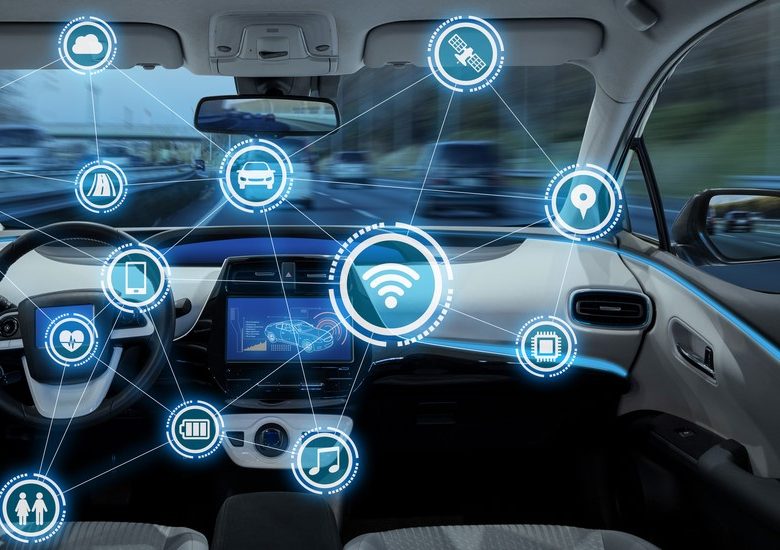Auto Industry
Automakers & the Complete Consumer Experience
January 14, 2019 | Written by: George Ayres
Categorized: Auto Industry | Mobile Computing
Share this post:
 In-car connectivity drives consumer choice. With the connected-car market expected by grow by 270 percent between now and 2022, consumer expectations are changing: Around half of consumers now expect to be able to access their smartphone apps through their vehicle’s digital interface.
In-car connectivity drives consumer choice. With the connected-car market expected by grow by 270 percent between now and 2022, consumer expectations are changing: Around half of consumers now expect to be able to access their smartphone apps through their vehicle’s digital interface.
Combined with the evolution of autonomous vehicle technology, automakers face a major change: To meet digital expectations, they must empower mobile devices to deliver an exceptional in-car consumer experience. But how do they transition from mobile-adjacent frameworks to connectivity by design? With the North American International Auto Show kicking off today in Detroit, innovation in mobility technology and services are top of mind for automakers participating in the five-day AutoMobili-D event.
Experience now informs consumer impact. As self-driving cars make their way onto city streets and under-the-hood features become standard across multiple car makes and models, auto manufacturers are being set apart by their ability to deliver the complete consumer experience. As noted by Digitalist Magazine, this starts with mobile wallet apps for easy fueling at gas stations and in-car payment applications for parking lots.
But that’s just the beginning. As autonomous cars gain traction, users expect seamless integration between handheld mobile devices and vehicle systems — whether that’s touchscreens that mirror current device activity, in-car infotainment based on user preferences or even group video conferences that allow remote workers to collaborate in transit. For automakers, when apps and services become the battleground of consumer loyalty, digital environment holdouts will find themselves on the losing side.
Just as the in-car experience is transforming, automakers also face the challenge of evolving service and dealership expectations. According to the Financial Post, some automakers predict a shift from ownership to use-based models and are developing subscription-based solutions that will take care of regular maintenance, minor wear and even winter tires, all rolled into a single monthly payment. Others are looking to a service-driven future that sees mobile expert teams coming to customers, delivering software updates and providing vehicle checkups or even more complex repairs on-site.
For automakers, it’s about extending the value of connected cars after purchase and outside the vehicle itself — everything the consumer wants, from in-car services to at-home maintenance, must be mobile-driven, on-demand and frictionless.
It’s one thing for automakers to recognize mobile market shifts and the need for complete consumer experience — it’s another to move from recognition to action. The solution? Bridging the gap by leveraging data-driven technologies such as:
- Machine Learning: Car manufacturers need machine learning tools capable of understanding user behaviors and anticipating new expectations.
- Analytics: Solutions such as IBM’s Watson for Automotive are critical to collect, synthesize and identify critical links across disparate data sets.
- Artificial Intelligence (AI): AI-enabled vehicles will become mandatory to improve the user experience via responsive, proactive, instinctive and explorative engagement.
- Predictive Modeling: Whether the future of connected-car buying is subscription-based or driven by mobile services, using data to forecast upcoming trends can help automakers align investment priorities with emerging consumer expectations.
Compelling Connections
As driving takes a backseat to in-car applications and services, car manufacturers face a critical shift: Consumers want vehicles that empower — rather than interrupt — their day-to-day digital experience. Achieving this goal means leveraging current technologies to build out a compelling consumer experience, and it also requires automakers to reimagine the current landscape of dealerships and service departments and leverage machine learning and AI-based solutions to build new connections for consumers.

Client Partner, Automotive Industry, IBM Global Business Services
Intelligent Tech Turns the Tide on Trafficking
Human trafficking and modern slavery are on the rise around the world. In its latest report, The International Labour Organisation found there are approximately 40.3 million victims of modern slavery. In the UK alone, authorities have seen the number of incidents reported rise by 36 percent in a year, with the Home Office estimating a […]
Unpacking 5G Broadband: the Promise and the Reality
Emerging technologies typically attract a lot of hype about how they will change everything. Sometimes the hype gets ahead of a technology’s real potential. In the case of 5G broadband, however, it’s arguable that the transformational benefits of this next-generation broadband wireless technology are actually under-lauded. This may be due, in large part, to its […]
These Days You’re Far From Alone When in the Field
If you’re a company that provides physical products or services, then you probably have engineers out in the field inspecting, servicing and maintaining those products. The role of so-called field engineers are by definition highly mobile, and apps are making a huge difference to these workers. Early apps consolidated workflow, logistics and job-related information. This […]





























